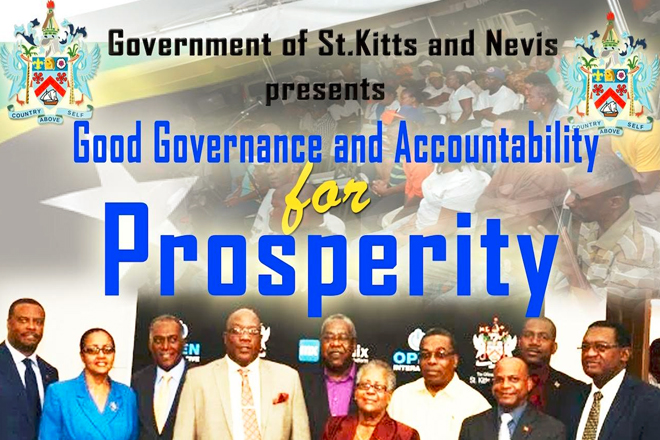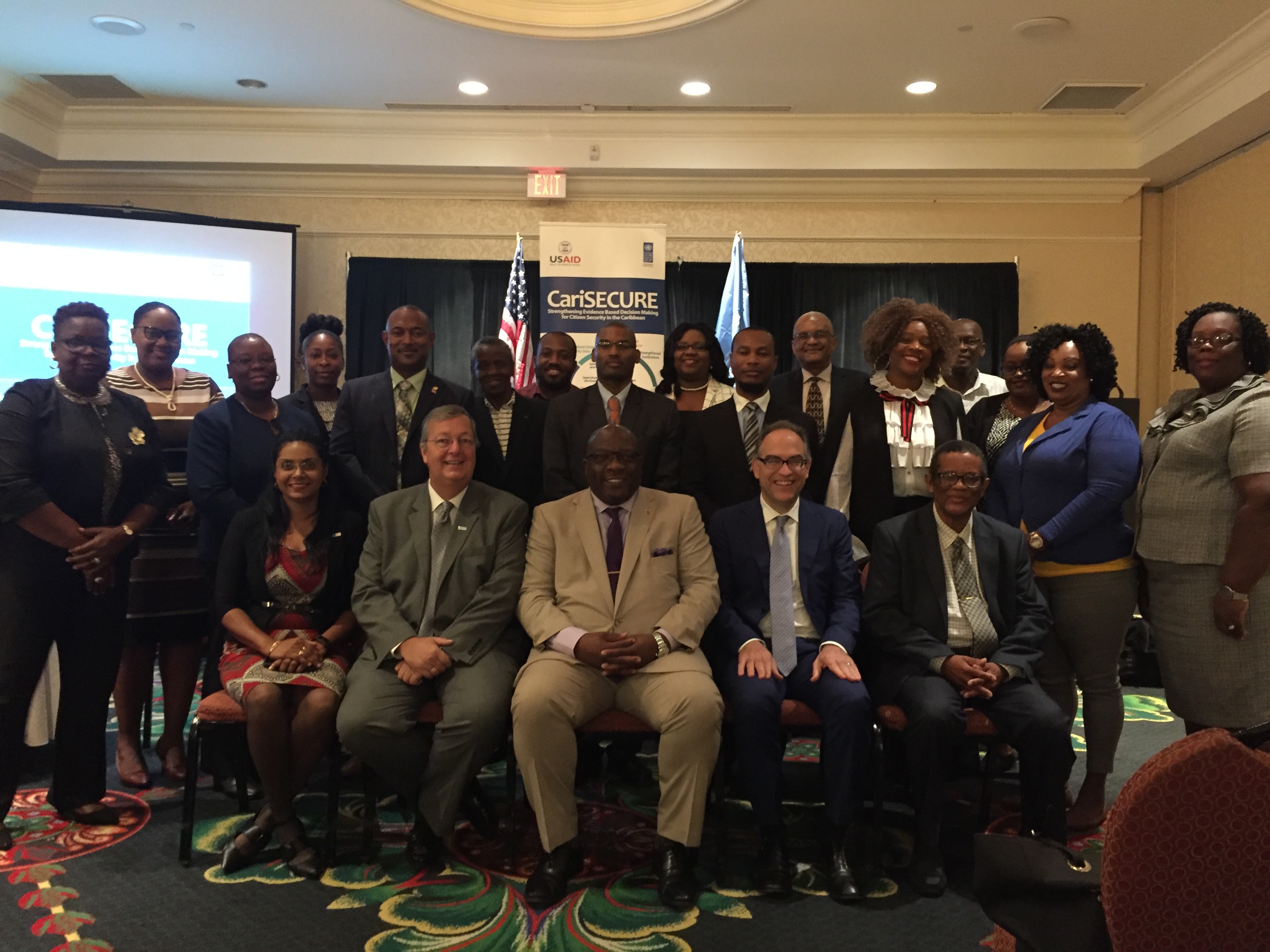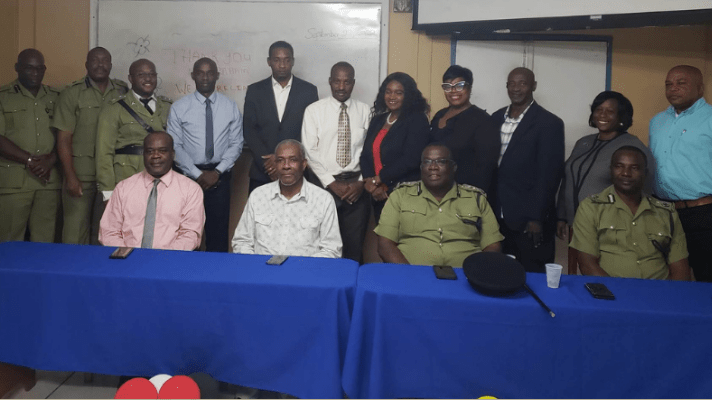May 8th, 2017
The Government of St. Kitts and Nevis wishes to record that the U.S. Department of State’s 2017 International Narcotics Control Strategy Report, Volume II: Money Laundering and Financial Crimes (INCSR 2017 Volume II), contains erroneous statements about our country that require an unequivocal response from the authorities.
Citizenship by Investment Program (CIP)
The Government of St. Kitts and Nevis works closely with the United States’ Department of Treasury’s Financial Crimes Enforcement Network (FinCEN) to ensure that its concerns about the CIP are addressed.
Over the past two years, the vetting of CIP applicants has improved significantly through active collaboration with international law enforcement agencies. Accordingly, the Federation of St. Kitts and Nevis now has one of the most robust vetting processes globally. For instance, our program became the first and only CIP to conduct a “look back” of applicants who were approved for citizenship over the last eight years. The Federation has also instituted an ongoing monitoring process to ensure the continuous security and integrity of the CIP.
Significantly, the International Monetary Fund (IMF) recently said in its Concluding Statement on the 2017 Article IV Mission to St. Kitts and Nevis that, “The authorities made significant efforts to strengthen the Citizenship by Investment program,” adding: “They have strengthened the due-diligence process with dedicated resources and global collaboration…”
AML/CFT Regime, Enforcement and Compliance with International Standards
INCSR 2017 Volume II erroneously states that, “There is a limited amount of information on the exact number of financial entities in the federation.” The facts show that the Eastern Caribbean Central Bank (ECCB) and the St. Kitts and Nevis branches of the Financial Services Regulatory Commission (FSRC) maintain complete records for all licensed entities operating in the Federation and also publish a full list on their respective websites.
There is also absolutely no basis to conclude that there is an “ambiguous regulatory framework regarding customer due diligence” that makes Nevis “a desirable location for criminals to conceal proceeds.” The Financial Services Regulatory Commission (FSRC) – the ultimate regulatory body for financial services and Anti-Money Laundering and Combating the Financing of Terrorism (AML/CFT) for St. Kitts and Nevis – adopted a Risk-Based Supervision (RBS) Framework in May 2015. The IMF, through the Caribbean Regional Technical Assistance Centre (CARTAC), was instrumental in providing the necessary training and expertise to develop the RBS Framework.
Furthermore, subject to Section 40 of the FSRC Act and Section 4(3) of the Financial Services Implementation of Industry Standards Regulations 2011 (FSIISR), the Financial Services Regulatory Commission (FSRC) undertakes enforcement actions in St. Kitts and Nevis. Statistics showing the number of on-site examinations/inspections conducted and enforcement actions undertaken by the FSRC’s St. Kitts and Nevis Branches are publicly available online in the December editions of the respective monthly newsletters.
In response to the damning and unsubstantiated charges of anonymous accounts, strong bank secrecy laws and overall lack of transparency of beneficial ownership of legal entities in the Federation, the Government of St. Kitts and Nevis notes the following:
Section 69 of the FSIISR prohibits anonymously operated accounts and requires regulated businesses to conduct due diligence, as well as record their findings in writing and keep such findings available. Additionally, the Federation’s Anti-Money Laundering Regulations, 2011, its Anti-Terrorism (Prevention of Terrorist Financing) Regulations, 2011 and its FSIISR with appending Guidance Notes require all regulated entities to carry out careful and comprehensive customer due diligence.
The Confidential Relationships Act, Cap 21.02 supports the confidentiality provisions in both the Nevis International Banking Ordinance 2014 and the Banking Act 2015, whilst importantly offering the same level of protection given in all other jurisdictions that allow financial institutions to operate. However, confidential information from banks can be disclosed in connection with a request for information under a Tax Information Exchange Agreement (TIEA) or Double Taxation Convention (DTC), or in pursuance of a regulatory or criminal investigation.
It is also grossly inaccurate and misleading to state that, “There are no guidelines to provide law enforcement the authority to conduct an investigation based on a foreign request for assistance.” In fact, the Federation’s Law Enforcement is guided by legislation that provides for international cooperation, among which are the Proceeds of Crime Act, Cap 4.28 and the Mutual Assistance in Criminal Matters Act, Cap 4.19. St. Kitts and Nevis also signed a treaty with the U.S. Government on Mutual Legal Assistance in Criminal Matters in 1997.
Additionally, the Federation’s Financial Intelligence Unit (FIU) continues to assist several jurisdictions, including the United States of America, with international requests to aid AML/CFT investigations. The FIU also spontaneously shares with U.S. agencies any and all information emanating from Suspicious Transaction Reports.
Noteworthy, too, is that St. Kitts and Nevis’ commendable progress in implementing the recommendations of the Financial Action Task Force (FATF) precipitated the country’s removal from the list of jurisdictions with strategic deficiencies in their AML/CFT regimes. Additionally, theOrganisation for Economic Co-operation and Development’s (OECD) Global Forum on Transparency and Exchange of Information for Tax Purposes completed a Phase 2 Peer Review Assessment of St. Kitts and Nevis, rating it as “Largely Compliant” along with approximately 80 other countries, including the United Kingdom and the United States of America.
Our Government is working assiduously to demonstrate that we are committed to abiding by the same exacting standards that the United States of America and our other longstanding allies adhere to, as responsible members of the international community.
END
*This article was posted in its entirety as received by SKN PULSE. This media house does not correct any spelling or grammatical errors within press releases and (or) commentaries. The views contained within are not necessarily those of SKN PULSE.








